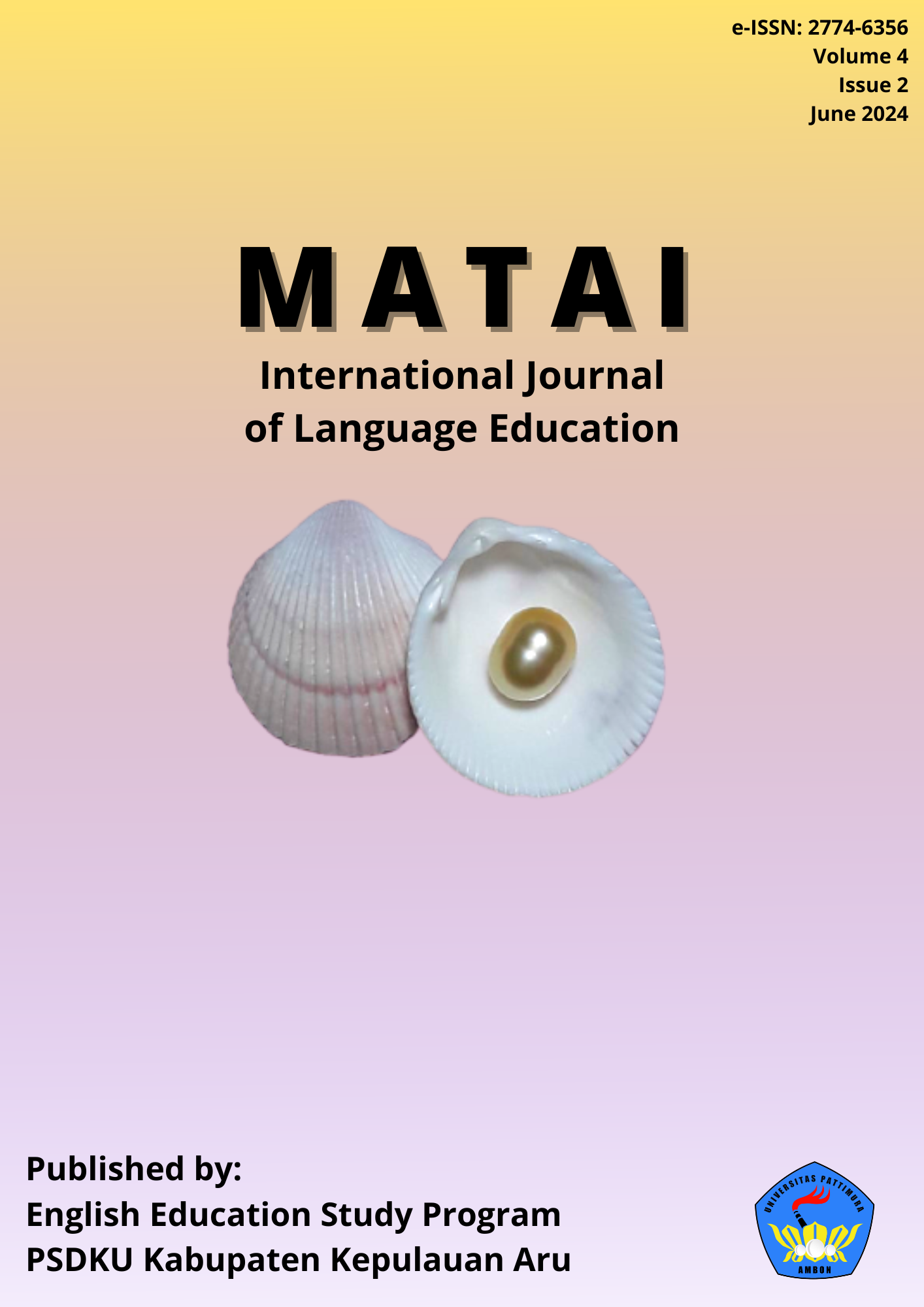Improving The Eighth-Grade Students’ Vocabulary Mastery Using Thinking Maps Strategy
Abstract
This research aimed to see how students' vocabulary mastery improves using The Thinking Maps Strategy. This research was designed in a collaborative classroom action research with a mixed method approach to gain the data. There were two cycles implemented in practical teaching activities. The data was analyzed using a mixed approach, quantitative and qualitative. The quantitative data was analyzed using tests, the qualitative data was analyzed using descriptive qualitative to gain meaningful information to support quantitative data. The result of the research indicated that there were improvements in students’ vocabulary from cycle 1 to cycle 2. The result of the first cycle showed that only 10 (55%) of students could achieve the criteria of success set for this research. The result of cycle II had significantly improved. The students also experienced a very significant development of activeness in the classroom by applying the thinking maps strategy in teaching students gave a very positive response, that they felt happy and interested in learning with this strategy because it can improve their vocabulary. This research also suggests that to improve students' vocabulary in learning effective and fun activities for students.
Downloads
Copyright (c) 2024 Sandra Ati Acher, Jeny Lekatompessy

This work is licensed under a Creative Commons Attribution 4.0 International License.
Authors who decide to share their articles with this journal must agree with these requisites:
|
1. The author, as the copyright owner, gives Matai the right to publish their work 2. Authors can share their articles, but they have to use Matai's published version by acknowledging Matai as the source. 3. Authors are encouraged to share their work online in order to let people know about their articles which can lead to more citations of the published work. |



